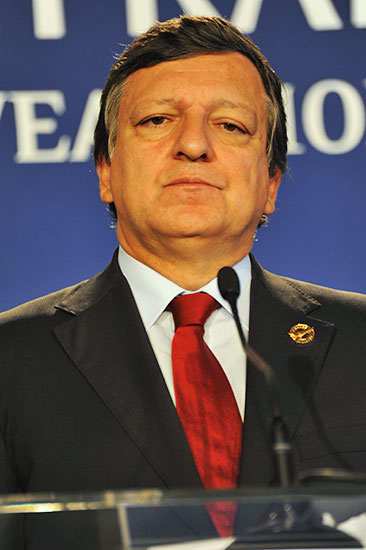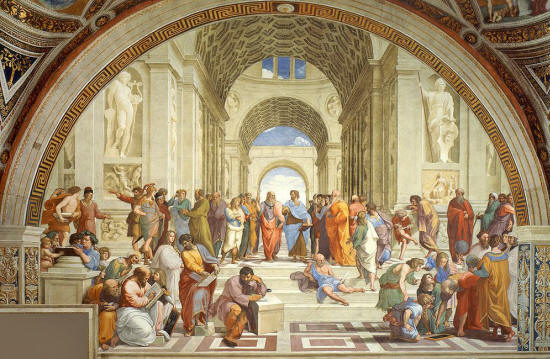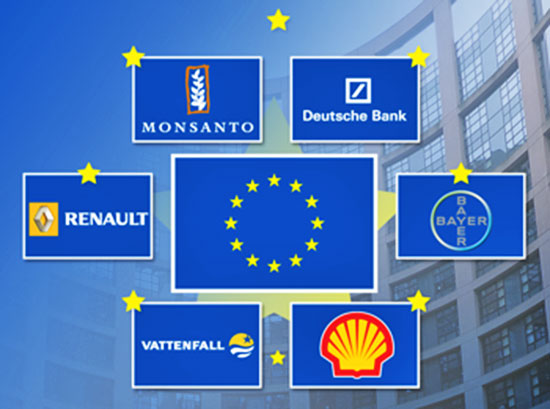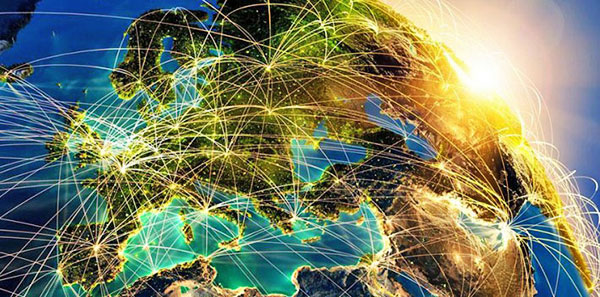PAUL: What is your
background, and how did you come to get involved in the Bruges
Group and the campaign for Britain to leave the EU?
ROBERT: My initial involvement in the Bruges Group came many
years ago while I was doing my master's degree in communications
management.
One of the key aspects of the course was that we had
to work with real organizations and produce research and
projects that were not just academically sound but which would
also be of use in the public and private sectors.
At that time, I was actually focused on becoming a sports
journalist. However, the more I got into the master's course the
more I realized that politics was more important to me and that
there were big issues, particularly the problems with the EU,
that needed to be tackled.
So I did a number of pieces of research that aided the
communications of various political organizations, such as the
Conservative Party in the UK, on subjects such as young people
and voting, and how to get young people more involved in
politics.
My master's dissertation was focused on matters to do with the
EU. I therefore contacted the Bruges Group and explained I
needed to do a piece of work to get my master's degree and that
I wanted to do something that could aid them and their
communications.
This eventually led to my becoming the
Campaign
Director of the Group in 2001, and later its Director which is
the post I hold now.
I've been very much involved in politics
ever since.
PAUL: During
the Brexit referendum campaign, politician
Boris
Johnson stated that the EU is pursuing a similar goal to Hitler
in trying to create a powerful superstate.
Warning that while
bureaucrats in Brussels are using "different methods" from the
Nazi dictator, he said they share the aim of unifying Europe
under one "authority".
Given the historical correctness of this
statement, were you surprised at the controversy it caused?
ROBERT: Well, on the one hand, I'm never surprised at anything
Boris says!
But while the EU is a very different organization to
the Third Reich, there have been many trends within politics on
the continent of Europe whereby certain ideologies have always
been in favor of centralizing power.
This goes back centuries
and many people have adopted this idea to serve their own
political ends.
Historically it has always been a fundamental aspect of British
foreign policy to ensure that the continent of Europe was never
dominated by any single political power.
This can be seen in
Britain's policy at the time of Queen Elizabeth I, its policy
during the Napoleonic Wars, as well as its defence of Europe
against German Emperor Wilhelm II during WWI and Hitler's Third
Reich during WWII.

Jose Manuel Barroso,
a former President of the European
Commission,
famously likened the EU to an empire.
By Guillaume Paumier (Own work) [CC BY 3.0],
via Wikimedia
Commons
One of the key aspects of centralizing power in Europe is that
it is antidemocratic.
Ultimately, what successfully overcame
Hitler and Nazism was the belief in the idea of the liberal
nation state. The EU and its belief in big government are the
antithesis of this.
Jose Manuel Barroso, a former President of
the European Commission, famously likened the EU to an empire,
commenting that previously people had tried to unite Europe by
force but that now it had been done through peaceful means.
Ultimately however, the end objective is the same.
The EU wants
to achieve control over the nation states and control democracy.
The EU is about supranational government, it's about having a
system of governance that is above the nation state and, rather
than celebrating our diversity and learning from each other,
harmonizing or standardizing rules and regulations across
borders.

The success of Ancient Greece
did not come from everything being
standardized,
it was actually a very diverse country with
different city states.
This created a great flowering of thought
and knowledge.
But the EU has thrown this idea out
and replaced
it with a corporatist model.
Raphael [Public domain]
via Wikimedia Commons
But to take an example, the success of Ancient Greece did not
come from everything being standardized, it was actually a very
diverse country with different city states.
This created a great
flowering of thought and knowledge.
But the EU has thrown this
idea out and replaced it with a corporatist model that is
essentially the last gasp of an older world where corporations
seek to control government.
We don't need our lives to be
governed by people sitting in some ivory tower in Brussels who
aren't democratically accountable to us.
PAUL: Sections of the British media have come in for a lot of
criticism just recently because of the clear pro-EU bias they
have shown in covering Brexit.
The BBC especially comes to mind
here. Some people even go as far as to say that the BBC is part
of the so-called "fake news" media.
What are your thoughts on
this?

The BBC has been partly funded
by the European Investment Bank,
an EU institution.
ROBERT: Well, the BBC has been partly funded by the
European
Investment Bank, an EU institution, so it actually has a direct
financial link to the EU.
The rest of its money comes from
television license fees, which everyone who owns a television in
Britain has to pay, so its output doesn't have to reflect what
the British public wants.
Since the 1970s, the BBC has always been biased in favor of the
EU. There is a certain arrogance at the BBC that it knows best.
It likes to think of itself as being part of an intelligentsia
that knows better than ordinary people. The EU is the perfect
political representation of this ideology.
An independent analysis examined the BBC's output during the
Brexit referendum and clearly showed that it didn't give a
proper balance to the arguments in favor of leaving the EU.
And
then, after the referendum, when Britain had chosen to become an
independent nation, most other national media would have
celebrated the result. In almost any other country in the world,
it would have been one of the jobs of the media to put the
national interest first.
But instead, the BBC and other sections
of the media have simply been creating scare stories and trying
to talk down the British economy.
Despite this, after the Brexit
vote the British economy actually grew faster than it had
beforehand and unemployment has fallen to its lowest level since
1975.
PAUL: Do you think other European countries will follow
Britain's example and leave the EU? If so, which ones are likely
to be first?

The EU has become
a racket for large corporations
ROBERT: There is no doubt that once Britain makes a success of
Brexit other countries will also leave the EU.
To paraphrase
former British Prime Minister William Pitt the Younger, I think
Britain will save itself through its exertions and save Europe
through its example.
So in a sense Brexit is nothing new, it is
simply Britain fulfilling its traditional role and embracing the
modern world.
As to which countries will be first to follow us, we'll have to
see.
In Scandinavian countries, there are many people who want
to leave the EU. The Bruges Group cooperates very closely with
Danish euro-skeptics, for example, and there is also opposition
to the EU in Sweden.
As a result of the euro currency crisis there is also Italy, a
diverse country with a great history of being inventive but
which has become economically dominated by Germany.
Italy is
suffering greatly as a result of being in the EU, and
particularly through using the euro currency. Its banks are now
insolvent and are being supported by the European Central Bank
against the EU's own rules.
Meanwhile, the EU is creating money and throwing trillions of
Euros out there to try and keep a financial system alive that is
already bust. It has effectively cut interest rates to the point
that they are now negative rates.
This is all phantom economics
and is kicking the can further down the road and making the
financial crash, when it finally does come, even worse.
Many German banks are also bust and being kept alive by Germany
and the EU.
Meantime they are loaning money to Greece, which
then has to make repayments to German banks at a time when the
Greek government is not even able to afford to feed its own
people.
The EU has become a racket for large corporations. You just have
to look at the evidence to see who benefits most from this.
When
you have a body that can make the rules for 500 million people,
you are giving away too much power and making it too easy for
those who want to game the system in their own favor.
PAUL: The pro-EU side continues to make gloom and doom
predictions about the supposedly dire economic prospects that
Britain will suffer from as a result of Brexit.
Are you
convinced that the country can have a bright future outside of
the EU?
ROBERT: Absolutely!
Britain will still have access to the EU
market as there are a whole host of international agreements,
such as those of the World Trade Organization (WTO), that
specifically allow other countries around the world to have
access to it.
The United States and China both successfully sell
their products in Europe, for example, and neither of them are
members of the EU.
In addition, London is the world's leading financial centre and
there are actually more German banks based there than there are
in Frankfurt.
Britain is already compliant with the EU's
financial rules so we will undoubtedly continue to trade with it
after Brexit, as well as with the rest of the world.
PAUL: Throughout the world, millions of people are waking up to
the reality that the supposed 'benefits'
of globalization have not
materialized.
Instead, the biggest beneficiaries seem to be
special interest groups and lobbyists who have direct access to
regulators and are therefore able to shape pan-national and
international law according to their preferences.
In the post-Brexit
world, what prospects do you think we have of changing this
undemocratic situation?

It is going to be a very exciting world that we are moving into,
one where real globalization will consist of people
coordinating, cooperating and communicating worldwide
through
technology
ROBERT: I think Brexit will come to be seen as one of the first
things that sweep aside what is really a false globalization,
which has simply been
about elites gaining more power and
setting the rules according to how they want them to be.
Brexit,
on the other hand, is about Britain operating and trading in a
global world, making its own agreements on terms that are
decided by our own government and whoever we are negotiating
with.
Countries are already lining up to have trade agreements with
us. Britain wants to cooperate with bodies of the WTO, and we
want to have our own voice on these bodies. We don't want to
have a
European Commissioner representing us
(the "President
of the European Commission").
Instead, we will
take our seat back at the WTO and participate in setting the
rules and forming alliances as we see fit.
The EU model, where we have the European Commission manipulating
and managing things, is anathema to most people in the UK.
Britain will now be re-joining the rest of the world, but not in
a form of globalization where large institutions are
manipulating the rules in their own favor.
Instead it will be
one where we are able to reach out and cooperate with other
countries in ways that modern digital technology will now allow
us.
And this is just the start of the process. It is going to be a
very exciting world that we are moving into, one where real
globalization will consist of people coordinating, cooperating
and communicating worldwide through technology.
It will not be
something that is managed according to massively complex
procedures set by people living in an ivory tower. Instead, it
will be done by us.
And this is what Britain,
through Brexit, is
embracing.
Ultimately, I believe Brexit will sweep aside the version of
corporatism that masquerades as globalization but is really just
a racket
benefitting a few people's interests.
This is a key
reason why I think other countries will also leave the EU and
that together we will have a far more democratic future and be
far more prosperous as well.